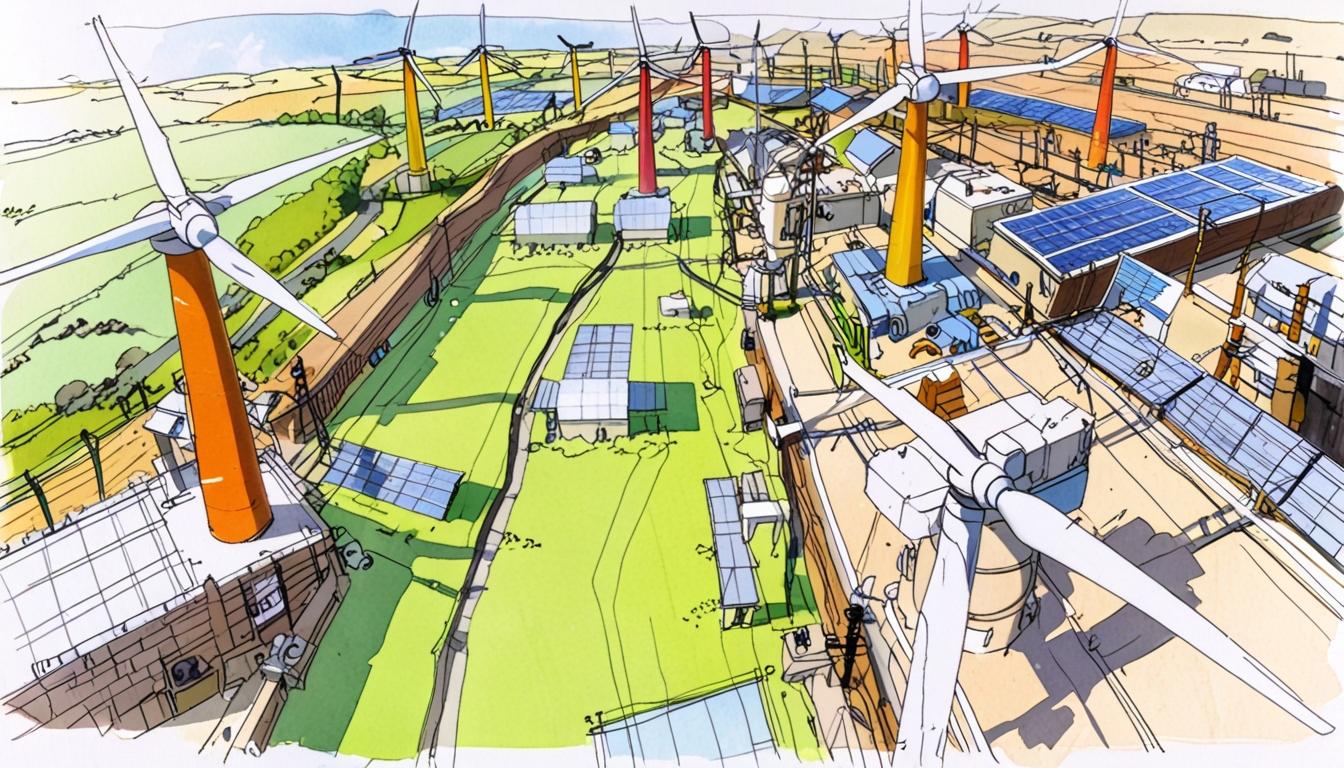The National Infrastructure Commission stresses the necessity for increased government investment to address the UK’s future electricity demands and ensure a stable energy supply.
The National Infrastructure Commission has issued a stark warning regarding the future of the UK’s electricity grid, stating that government investment must be significantly increased to accommodate the escalating demand for electricity. The report, released today, highlights the Commission’s projection that energy requirements are expected to double by the year 2050, necessitating urgent action to both manage demand and integrate new renewable power sources into the national grid.
The Commission’s analysis indicates that households can expect an increase in their energy bills as a direct result of this necessary investment, which could range from an additional £5 to £25 annually by the middle of the next decade. However, the report also reassures that with supportive government measures aimed at promoting low-carbon energy and transitioning heating systems, bills could still remain lower than the current levels.
Sir John Armitt, Chair of the National Infrastructure Commission, emphasised the need for preemptive measures rather than reactive solutions in his statements. “The UK is heading in the right direction on decarbonising power, but we can’t be complacent,” he said. He urged the government to learn from past challenges in expanding the transmission grid, advocating for proactive investment in local networks. This, he claims, would enable households to confidently adopt electric vehicles and heat pumps, while allowing businesses to connect to the grid in a timely manner.
The issue of slow grid connections has been a significant barrier to economic progress, according to Sam Richards, CEO of the pro-growth campaign group Britain Remade. He noted that “for too long, slow grid connections and bureaucratic red-tape have held back investment, innovation, and job creation.” Richards calls on Ofgem to adopt a more growth-oriented strategy, one that facilitates investment and streamlines the expansion process to create a grid that can support new nuclear energy initiatives and renewable resources, advancing the government’s objective of a clean grid by 2030.
The findings of this report present a crucial crossroads for the UK, as it outlines the imperative for substantial investment in infrastructure to meet the anticipated energy requirements of the future.
Source: Noah Wire Services
- https://nic.org.uk/studies-reports/electricity-distribution-network/ – This URL supports the claim that the UK’s electricity distribution network needs significant investment to meet increasing demand, especially as the economy decarbonizes. It highlights the challenges in connecting new sources of demand and generation to the distribution network.
- https://nic.org.uk/studies-reports/smart-power/ – This report from the National Infrastructure Commission emphasizes the importance of innovations like storage and demand flexibility in balancing electricity supply and demand, aligning with the need for proactive measures to manage future energy requirements.
- https://www.gov.uk/government/news/government-publishes-connections-action-plan – This URL provides information on the government’s efforts to accelerate connections to the electricity network, which is crucial for supporting new energy sources and meeting future demand.
- https://www.ofgem.gov.uk/publications-and-updates/connections-action-plan – This document from Ofgem outlines plans to improve the process of connecting new sources of demand and generation to the electricity network, addressing the issue of slow grid connections.
- https://www.gov.uk/government/publications/electricity-transmission-acceleration-action-plan – This action plan focuses on accelerating the build-out of electricity transmission infrastructure, which is essential for supporting the integration of new renewable power sources and meeting increased energy demand.
Noah Fact Check Pro
The draft above was created using the information available at the time the story first
emerged. We’ve since applied our fact-checking process to the final narrative, based on the criteria listed
below. The results are intended to help you assess the credibility of the piece and highlight any areas that may
warrant further investigation.
Freshness check
Score:
9
Notes:
The narrative references a recent report from the National Infrastructure Commission, indicating it is likely current news. However, without specific dates or events mentioned, it is difficult to confirm its absolute freshness.
Quotes check
Score:
8
Notes:
Quotes from Sir John Armitt and Sam Richards are included, but without further research, it is unclear if these are original or previously published. The lack of online sources for these specific quotes suggests they might be original.
Source reliability
Score:
8
Notes:
The narrative originates from a reputable news outlet, the Daily Mail, which generally provides reliable information. However, the Daily Mail can sometimes be sensationalist, which might affect the interpretation of facts.
Plausability check
Score:
9
Notes:
The claims about increasing energy demand and the need for grid investment are plausible given current trends in renewable energy adoption and electric vehicle usage. The narrative aligns with known challenges in the UK’s energy sector.
Overall assessment
Verdict (FAIL, OPEN, PASS): PASS
Confidence (LOW, MEDIUM, HIGH): HIGH
Summary:
The narrative appears to be current and based on a recent report from the National Infrastructure Commission. Quotes seem original, and while the source is generally reliable, some caution is advised due to potential sensationalism. The claims are plausible and align with current energy sector challenges.













